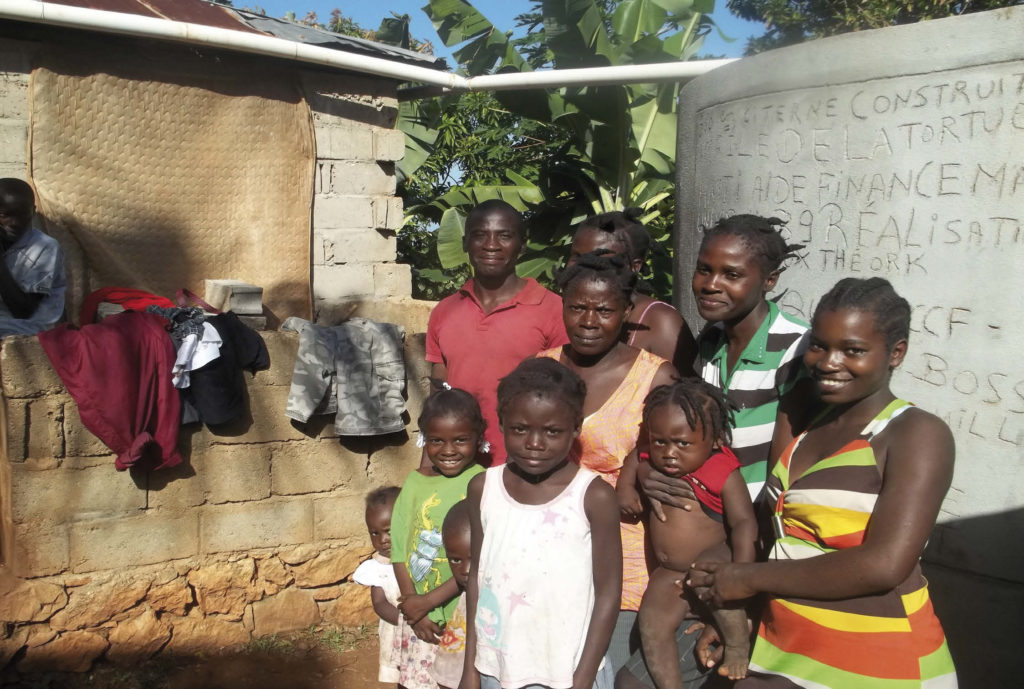Last year, the Bank's Ethical and Solidarity Fund
Sabadell financially supported thirty-two social projects to which,
as reported by the entity, 32 percent of the management commission was ceded
of the Investment Fund.
These are donations to projects that are mostly focused on covering risks of social exclusion, basic food, education and health needs of various groups, and improving the living conditions of people with disabilities. The Ethics Committee of the ethical and solidarity collective investment institutions of Grupo Banco Sabadell has already selected the projects to be supported for 2019, the amounts in euros of which will be made public in July.
In November last year, Palabra unveiled numerous projects supported by the Fund in 2018. Among them were those of the Franciscan Sisters of the Immaculate Conception in Bangalore (India), those of the Missionaries of Jesus, Mary and Joseph, the Pere Tarrés Foundation in Barcelona, the Mis Aldeas educational project in Uganda, the action of Manos Unidas in Haiti, one of the most disadvantaged countries in the Americas; several itineraries of socio-labor insertion of Caritas, those of the Order of St. John of God in Ciempozuelos, or the Down Syndrome Foundation in Madrid.
Regarding the Fund, a few ideas that are interesting to know are interesting to know are the following: solidarity and profitability are not at odds with each other. are not at odds: the amount dedicated to the project is deducted from the bank's commission, not from the client's profitability; no institution, no matter how modest, is excluded, even if it is a modest one. from the client's profitability; no institution, no matter how modest, is excluded, and if a project does not and if a project is not awarded a prize, it can be presented in the next edition. The project evolves every year, and is open to everyone, so you don't have to be a customer. so you don't have to be a client. Civil organizations are also involved, although the direct and indirect the direct and indirect effects of the work carried out by religious institutions, such as the respect for the dignity of the human person. the direct and indirect effects of the work of religious institutions, such as respect for the dignity of the person and support for depressed or excluded groups. depressed or excluded groups.
Regarding its ethical profile, it is good to know that that "all the Fund's positions are selected on the basis of its ethical ideology, which, in the opinion of the which, in the opinion of the Management Company, is in conformity with the Social Doctrine of the Catholic Church. of the Catholic Church". The Ethics Committee determines the criteria applicable to the Fund's the criteria applicable to the Fund's investments and supervises compliance by the the criteria to be followed by the Manager, "that confirm the aforementioned ethical ideology". Along these lines, this Committee has decided to make special annual grants to Caritas and Manos Unidas. to Caritas and Manos Unidas, which represent "....at least 30 percent of the total of the annual aid".for each entity to distribute it internally as it wishes in their as it wishes in its various projects.
Background Features
The project was born in 2002, it is intended that the beneficiaries are different; grants in 2018 were 400,000 euros in 2018, and since 2009 the total aid amounts to 1.5 million euros, according to its 1.5 million euros, according to its directors.
As for the Fund, the prospectus filed with the CNMV the CNMV states that "may not be suitable for investors who expect to withdraw their money in less than four years". withdraw their money in less than four years". In addition, it is stated that "The management takes as a reference the performance of the index formed from the average revaluation achieved by the mutual funds. the average revaluation achieved by the mutual funds in the 'Mixed Fixed Income Europe' category. funds in the 'Mixed Fixed Income Europe' category, according to the economic daily Expansión. Expansión".
The Fund invests in "assets traded
in Western Europe, mainly, and in other markets, such as USAJapan, or
a maximum of 15 % in emerging countries".. Equity exposure, under normal conditions, is 20 percent (minimum 0 % and maximum 30 %) with no capitalization limit. The remainder is invested in euro-denominated public and private fixed income.
Still in time This year's call for The call for this year's grants for solidarity projects is still open until May 31, as we informed at the beginning. So that those institutions institutions that require information may contact the mailbox institucionesreligiosas@bancosabadell.com The resolution will be known in July.








